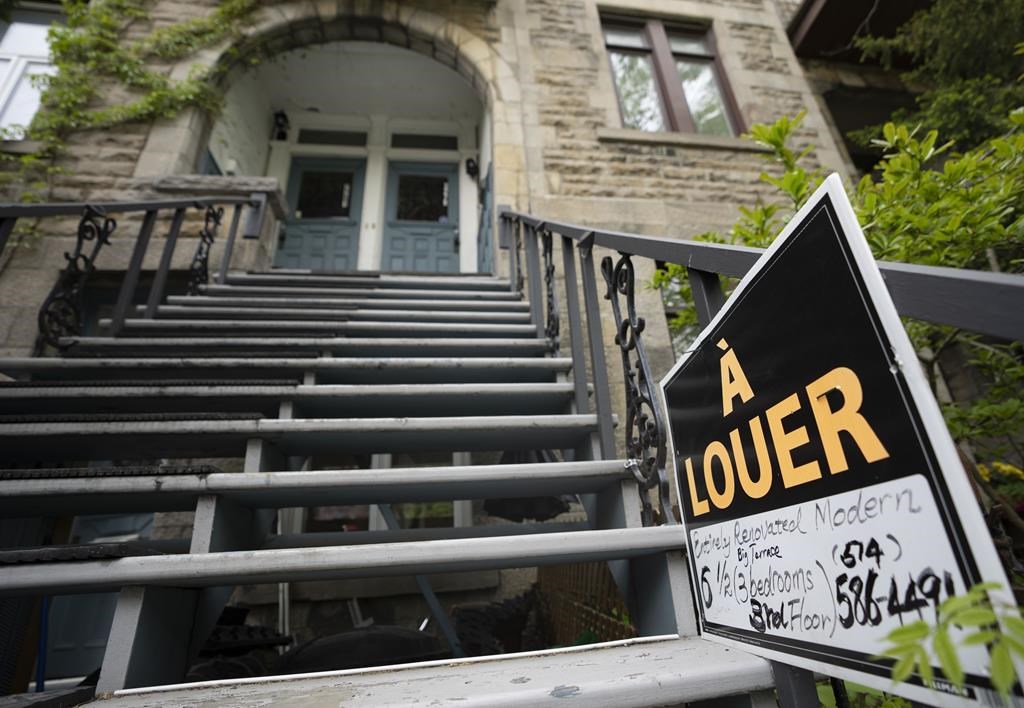Bussiness
Montreal housing market in crisis: new study

“Housing, it’s a right. It’s not a privilege. So we need to defend it,” says Montreal City councillor Robert Beaudry, following the release of new data from a study on the housing market. Anastasia Dextrene reports.
The housing market continues to worsen in Montreal, according to a new study commissioned by Vivre en Ville, conducted by Léger, in partnership with the City of Montreal.
For the second year in a row, they are releasing data about the state of the rental market across Quebec, and are giving specifics about Montreal.
“Data is really important when we want to follow up a situation. We are in a crisis right now,” said Projet Montréal City councillor Robert Beaudry, in charge of the homelessness file and urban planning.
The findings showed that the number of tenants who’ve reported experiencing homelessness has increased by 50 per cent since 2023, rising from 10 per cent to 15 per cent.

“This year allows us to make some unprecedented observations about the current trajectories in the rental market,” said Vivre en Ville housing director Adam Mongrain.
People who moved between apartments in 2024 saw an average rent increase of 24 per cent ($259.30).
Also, the number of rental units priced between $500 and $749 has heavily declined, dropping from 25 per cent to 18 per cent, while other units with rent starting at $1,250 has increased from 21 per cent to 28 per cent.
“We commissioned this study for a second consecutive year because there is currently a lack of reliable data on the rental market in Quebec, leaving us without an accurate picture of the rental market,” said Mongrain. “This information gap makes life more difficult for Quebec households and hinders decision-making by our elected officials.”
“The housing crisis affects everyone. This second study demonstrates that rental housing is becoming increasingly unaffordable,” said Beaudry. “The conclusion is clear: tenants are paying more for rent, increasingly resorting to the TAL, and simply do not have access to the information they are entitled to.”
According to a press release, 84 per cent of Montreal tenants are unaware of Section G of their lease, which indicates the lowest rent paid in the past 12 months.

Eleven per cent of tenants have already sought rent adjustments through the Tribunal administratif du logement (TAL), marking a 37.5 per cent increase since 2023.
“On average, people who moved in the last year from one apartment to the other have faced an increase in rent of over $250,” said Mongrain. “These numbers we don’t get from anywhere else. So we’re happy to start making these numbers known.”
The full study covering the entire province of Quebec will be released next fall.
“All levels of government must be involved in navigating this crisis. Therefore, we reiterate our call to the Quebec government to establish a national Rental Registry,” concluded Beaudry.
The web survey polled a total of 5,551 renters in Quebec aged 16 and over, with 1,579 respondents who live in Montreal from May 8 to 31.

A significant proportion of the study’s respondents say they’ll accept any rent increase given to them for the simple reason that they feel they have no alternative.
“Housing, it’s a right. It’s not a privilege,” said Beaudry. “So we need to defend it and we need to develop this right and the access to this right.”


)






